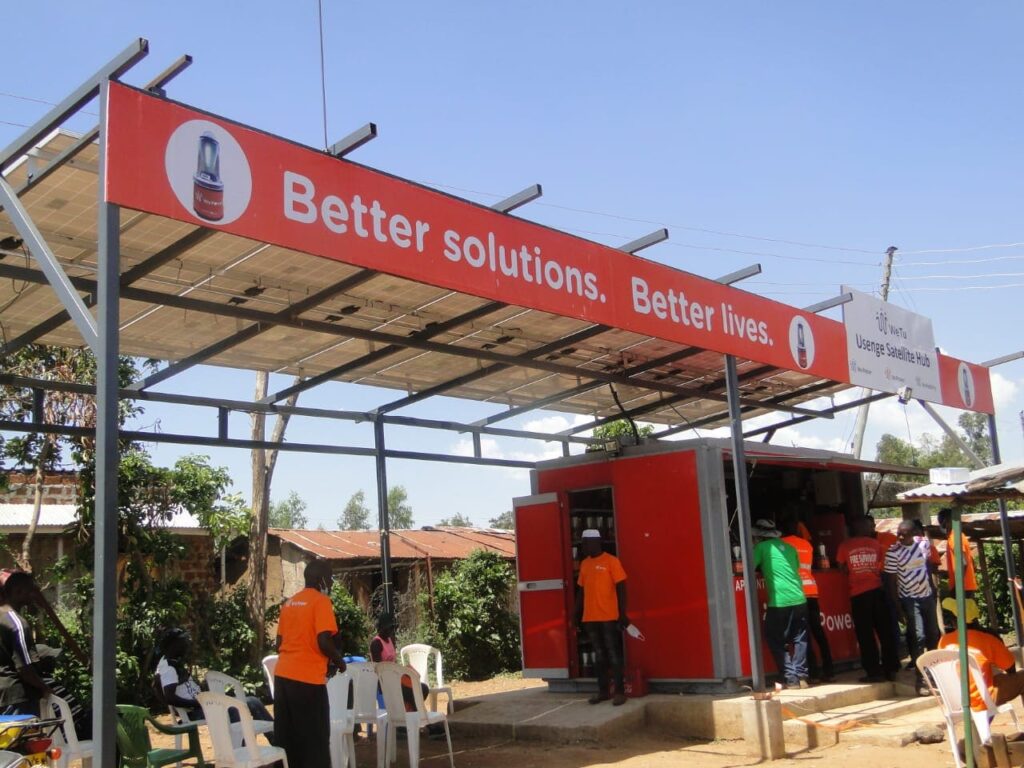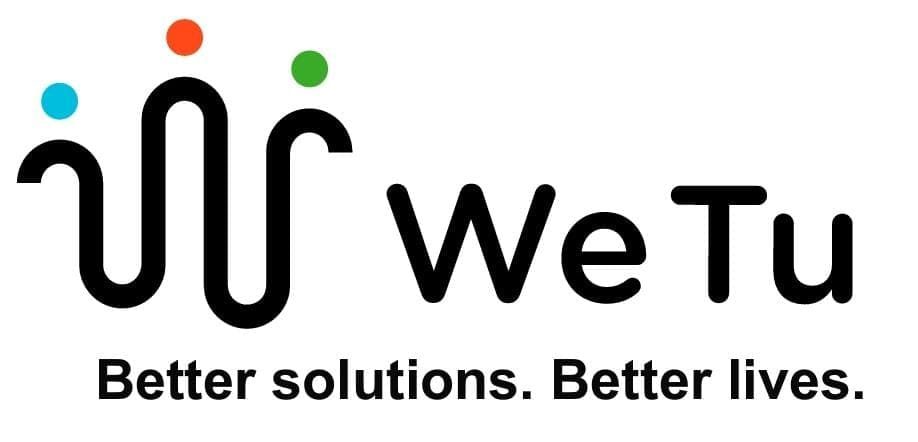In West Kenya fishing plays a pivotal role and is one of the major sources of income in the Lake Victoria region. It is not only done during the day, but mostly during the night when the sun sets, and lights on the water appear to be a big city shining in the dark. But what are the fishermen using the lights for? It is not to see clear at night, but rather a mean to catch the Omena fish. A small fish that is a trademark dish in the lake region. The lights on the water attract mosquitoes and the Omena is drawn to the swarm of insects gathering over the surface. To provide the light, fishermen fix lanterns to floaters and distribute them on the water. After some hours, they return to their lanterns and pull up the fishing nets to gather their catch. At dawn, they return to the coast where they unload their fish that is then dried and mostly distributed on local markets.
Shifting from paraffin to battery powered lanterns
To attract mosquitoes and Omena, fishermen mostly used paraffin lanterns in the past. But the fluctuating costs of the paraffin led to uncertainty and curtailed the income of the fishermen to different extent. Additionally, it often spilled, polluted the water and brought the risk of burnings. A lot of fishermen switched their source of light over time to find more profitable solutions. Many substituted the paraffin lanterns with bulbs powered by lead-acid batteries. The motorbike batteries secured a more stable profit margin but the negative effects on the environment only shifted instead of being solved: Inquiries showed that lead-acid batteries are used up until 2-3 months before their capacity is too week to serve as a fishing lantern. After this period, the batteries are sold to households or scrap dealers until they reach their end-of-life (EoL). Missing incentives and control mechanisms for recycling partly result in old lead-acid batteries piling up or being dismantled under uncontrolled circumstances where hazardous effects on people and the environment cannot be guaranteed. Sometimes, rough weather conditions on the lake can even lead to the batteries sinking to the ground eroding under water and releasing its partially hazardous components over time into the ecosystem.

Combining affordability and sustainability
To offer a solution to this challenge, WeTu provides lanterns within its vertical WePower. The fishermen get the solar lanterns for a competitive price that minimize the negative effects on the lake and its surroundings at the same time. The WePower lanterns are accessible via a “sharing economy model”. This means that the fishermen do not own the lanterns but rent them for their night fishing activities. After paying a deposit, the rental fee includes the charging and the maintenance service. WePower is using solar energy as a renewable resource at our WeTu Hubs to charge the lanterns. The business model makes sure to provide a fully functioning high quality product as well as making sure to phase out end-of-life products in an environmentally sound manner. The lanterns are equipped with lithium-ion batteries which are known to have a longer life-span than lead-acid batteries. To further contribute to a circular economy, WeTu introduced WeCollect in 2020. WeCollect raises awareness about the risks and chances of WEEE (waste of electrical and electronic equipment) and opened a pre-processing plant for e-waste located at our WeTu Hub in Homabay. Amongst other products, our own WePower lanterns will be dismantled in place before forwarding the different components to respective recycling companies. This way we want to make sure that the biggest part of the products are staying in a circular economy where resources can be reused over and over again.

Expanding our distribution network
To reach more fishermen, raise awareness and be able to widen the delivery with safe and sustainable solutions, WeTu is expanding its WePower services by opening new distribution outlets, the so-called WeTu Satellite Hubs. We are happy to announce that the first WeTu Satellite Hub in Usenge, Bondo Sub County was launched on January 29, 2021. The hub is serving Usenge and neighbouring beaches such as Osieko, Nyenye and Mageta Island. Two additional Satellite Hubs were set up in Wich Lum and Kamariga beaches, which wait to be launched in March this year. Besides our WePower services, providing fishing lanterns, our Wich Lum Satellite Hub will also provide WeWater services – our safe and clean drinking water, accessible 24/7.


